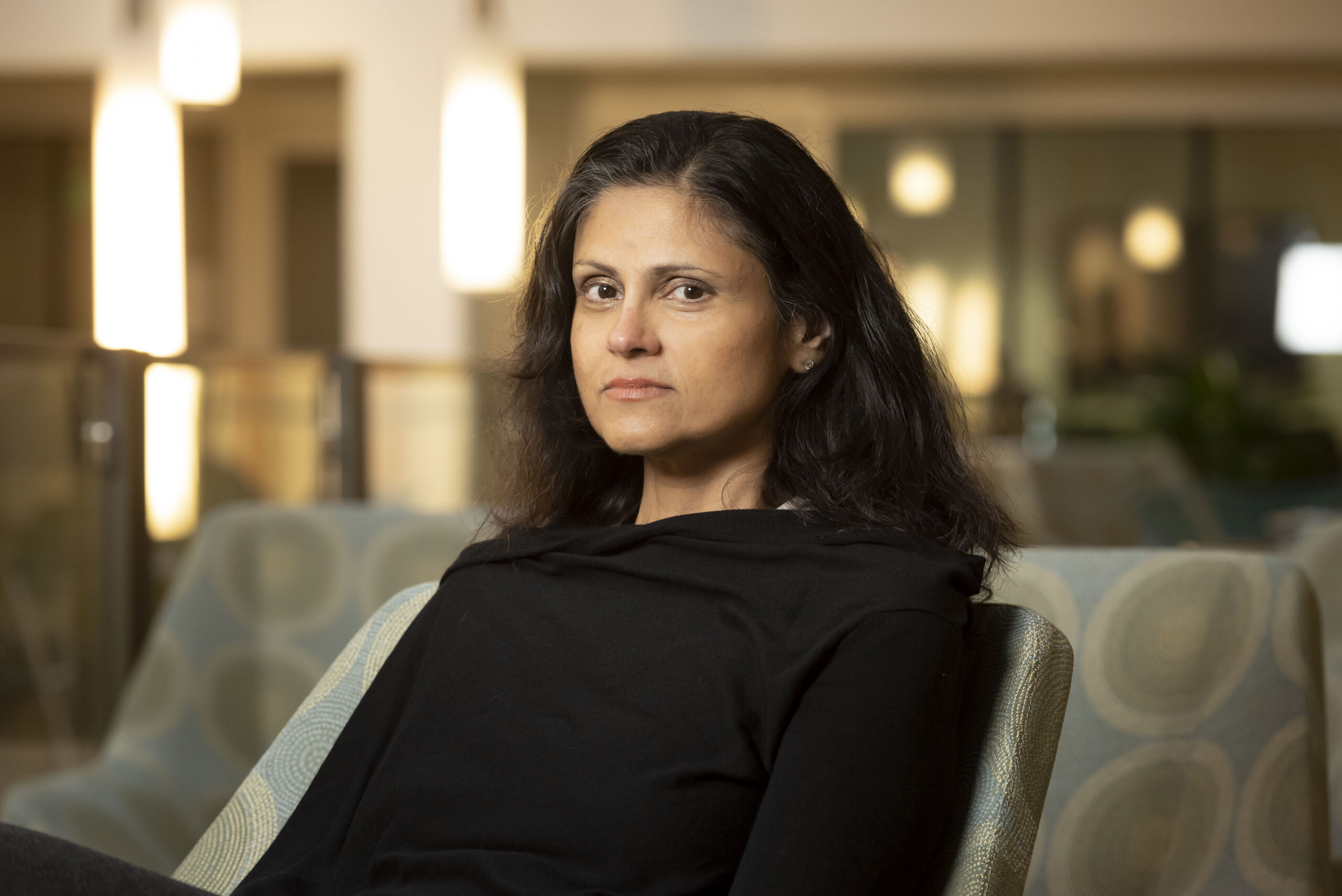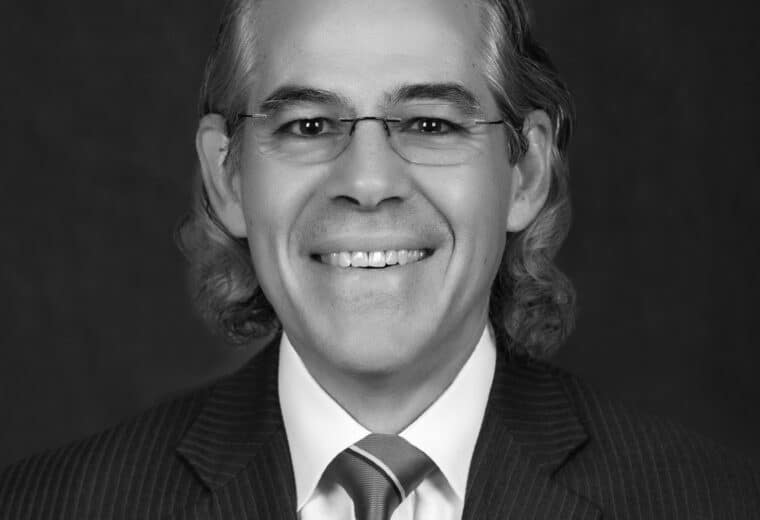
Trailblazers: Chris Monroe
A professor of electrical and computer engineering and physics and director of the Duke Quantum Center, Monroe and colleagues are leading an effort to engineer the world’s first practical quantum computer
Liang Feng is pursuing a unique approach to tackling climate change by efficiently capturing and storing gas molecules

Imagine a material with so many microscopic twists and turns that unfolding the internal space of just one gram would cover the entirety of Wallace Wade Stadium.
That’s the reality that Liang Feng is engineering. Using technologies called metal-organic frameworks (MOFs) and porous polymer networks (PPNs), these materials boast pores 25,000 times smaller than typical porous rocks, offering a unique approach to tackling climate change by efficiently capturing and storing gas molecules.
And if you’re wondering how the heck Feng plans on jamming that much gas into that small a space, don’t worry, he’s got plans for that too.
Complementing the MOF and PPN research, Feng has also created artificial molecular machines that continuously capture and store molecules onto surfaces at high concentrations. As soon as he saw the process in action for the first time, which he dubbed “active mechanisorption,” he knew it would have massive implications for climate and sustainability.
Together, Feng’s work is a discovery that breaks with tradition–particularly in the way it can directly impact how carbon dioxide is removed from the air and the ocean. This direct removal of particles has real implications for environmental sustainability, challenging established norms and setting the stage for innovative solutions.
Feng’s new appointment at Duke is a boon to the school’s Climate Commitment and collaborative work to address climate change. On board with Duke in just three months, his team has secured funding from the Scialog Negative Emission Science (NES) Program and the Alfred P. Sloan Foundation, been recognized as the first-ever American Chemical Society (ACS) Sustainability Star by ACS with incoming features on the Chemical & Engineering News (C&EN), and been selected as one of the finalists of DOE ARPA-E IGNIITE 2024 Program with invitations to present his carbon capture research at ARPA-E headquarter at Washington, DC on March 6th 2024. His dedication to practical solutions and collaborative endeavors make him a necessary member of the new generation of researchers solving the world’s greatest challenges.

A professor of electrical and computer engineering and physics and director of the Duke Quantum Center, Monroe and colleagues are leading an effort to engineer the world’s first practical quantum computer

Musician, entrepreneur, educator – Nimmi Ramanujam has done it all.

Jimmie Lenz embraced the transformative potential of blockchain technology and digital assets early on—a vision that ultimately reshaped his career trajectory and brought him to Duke University